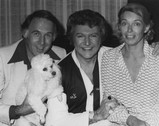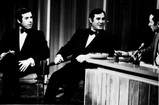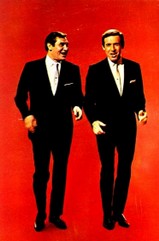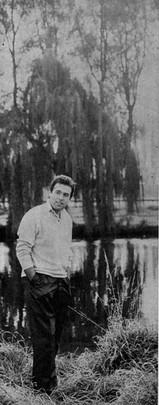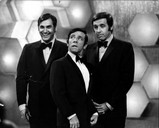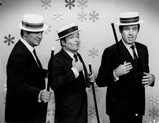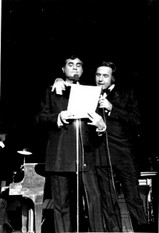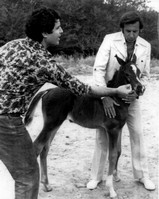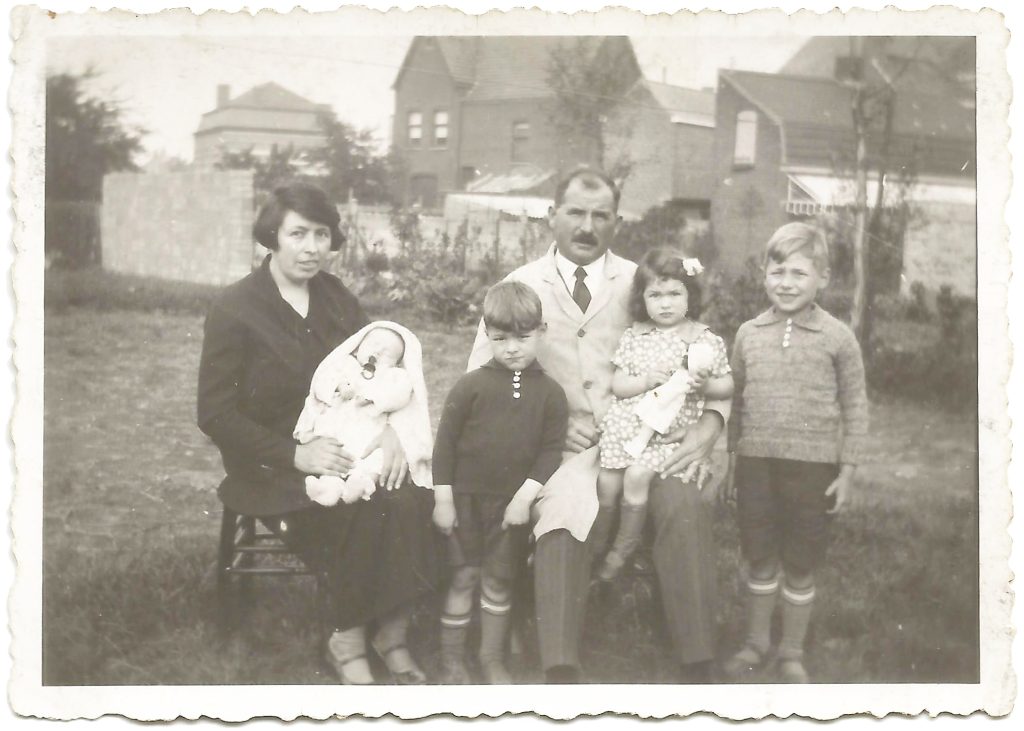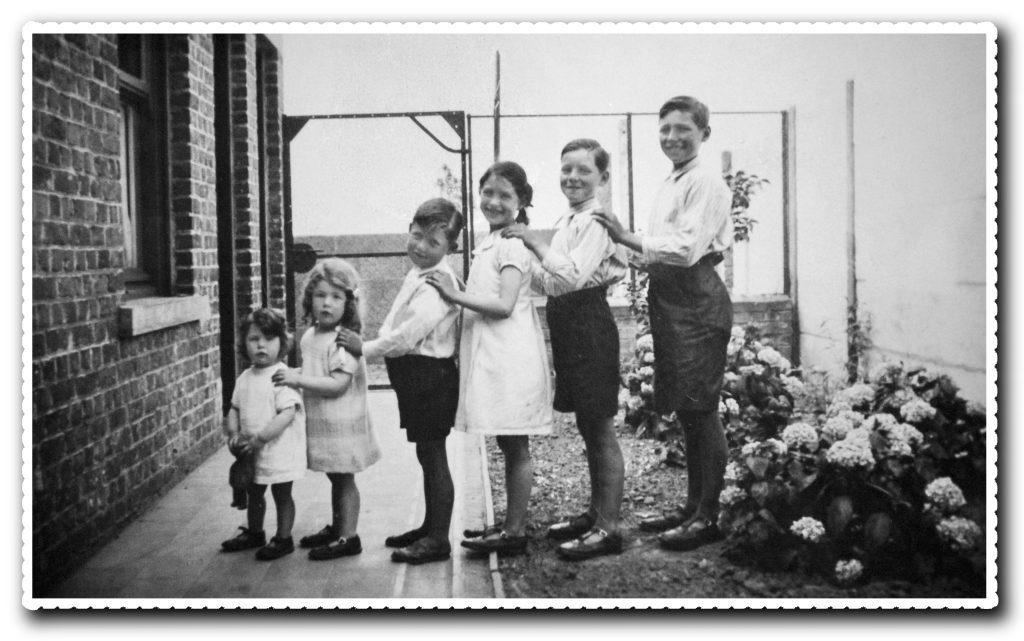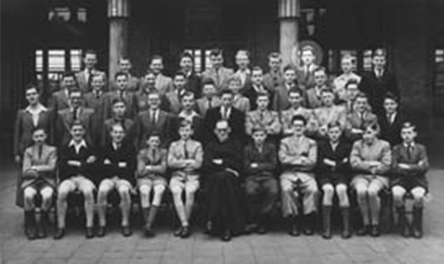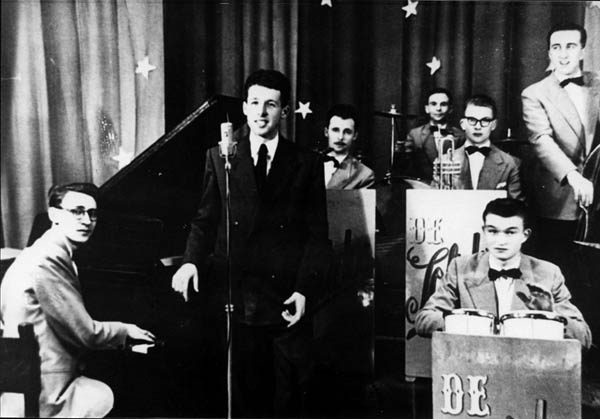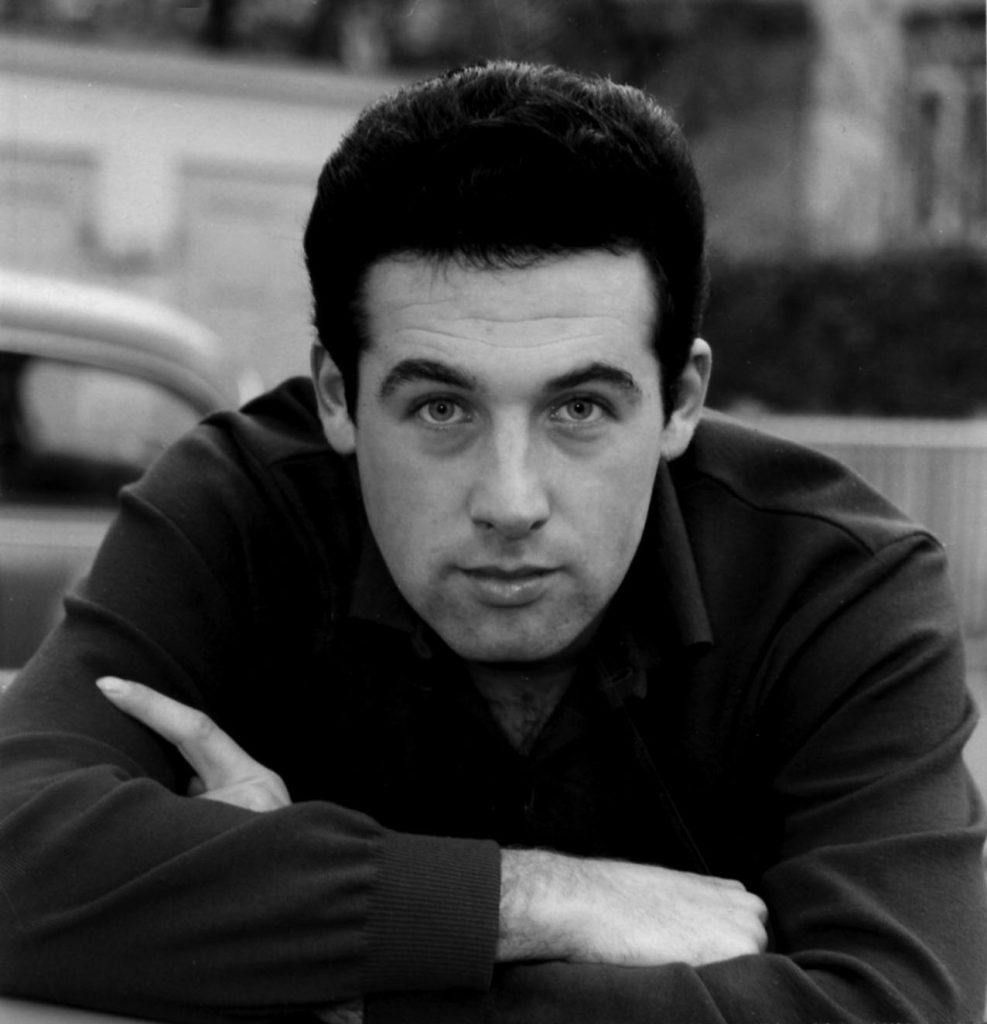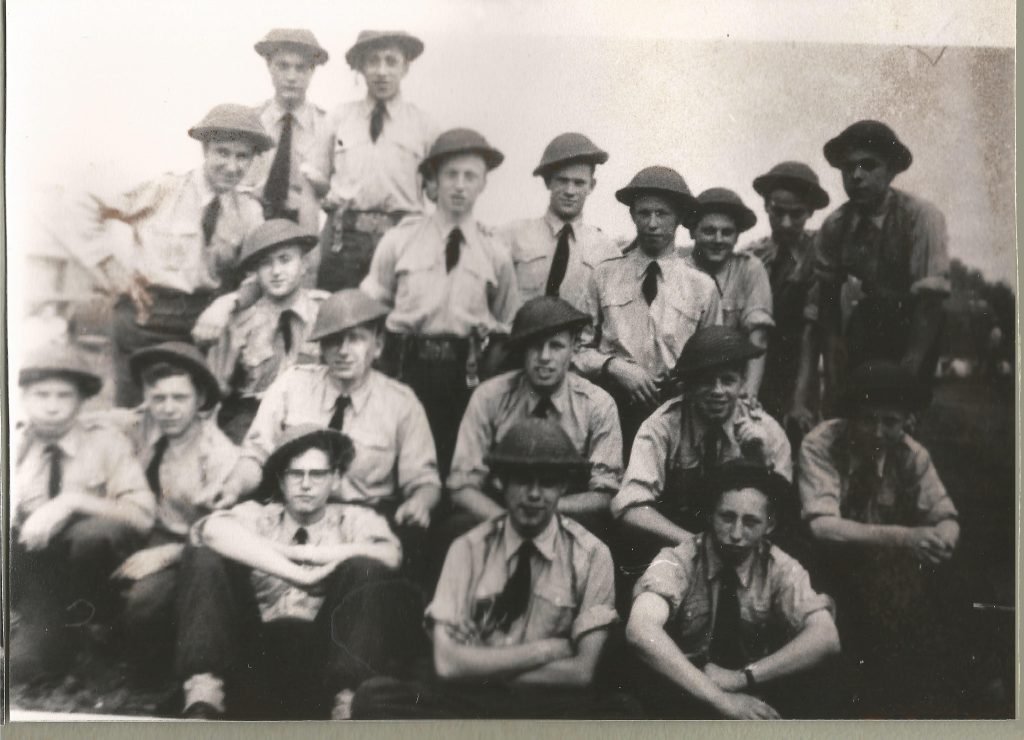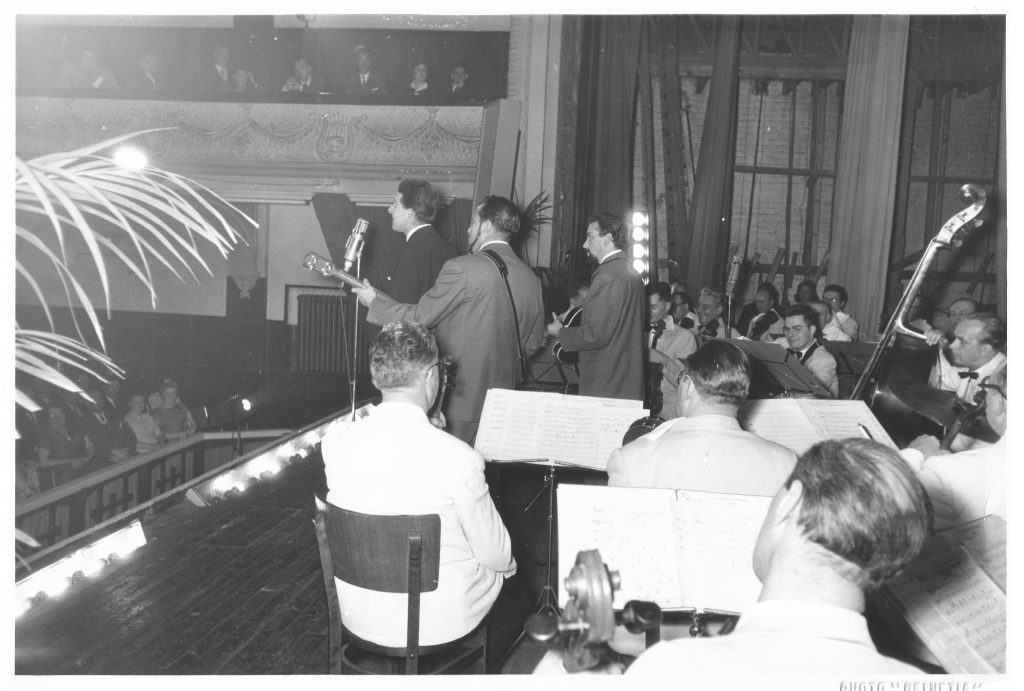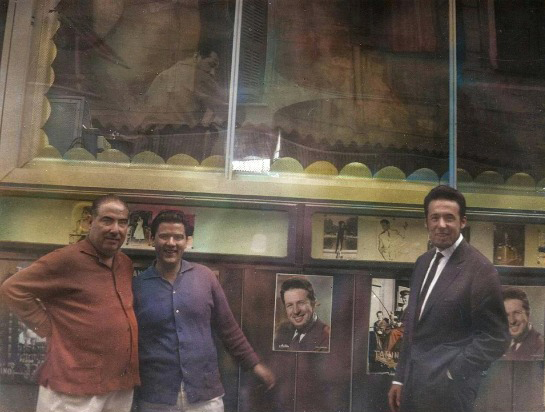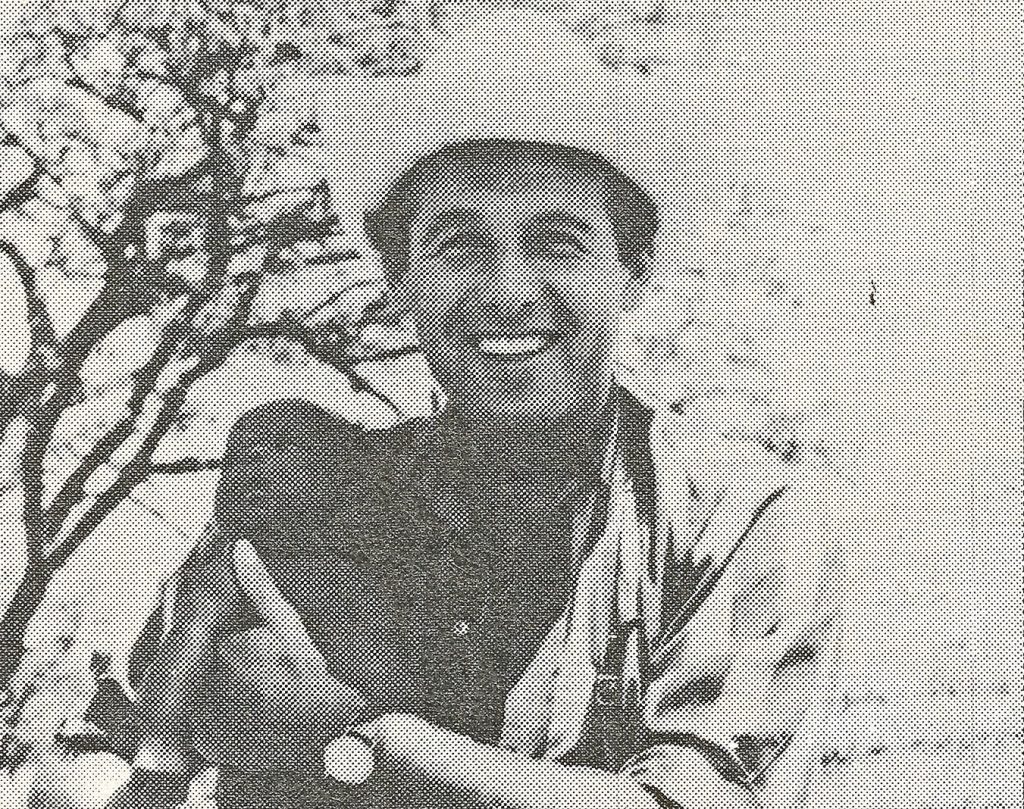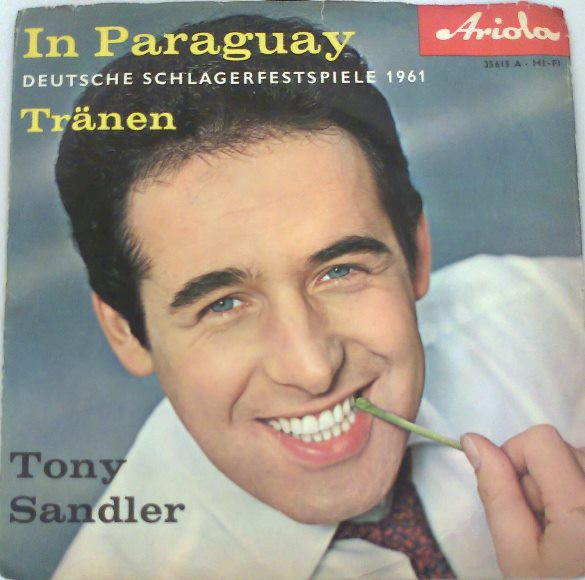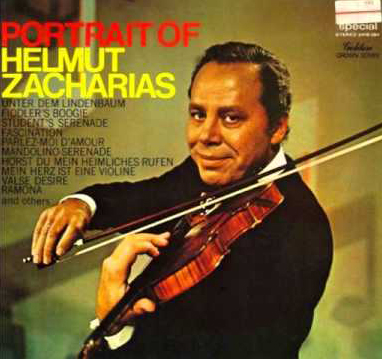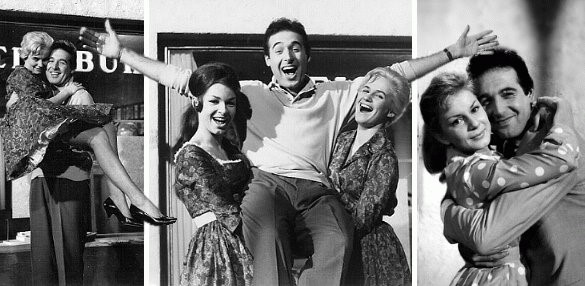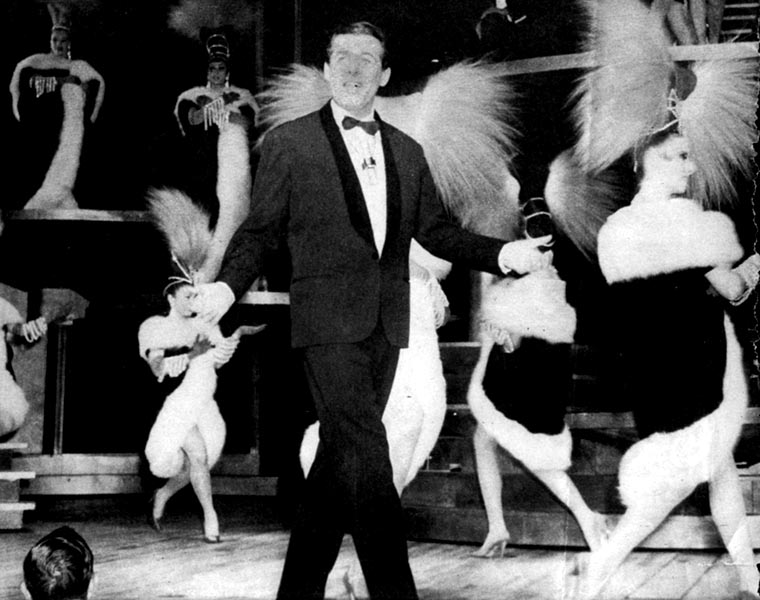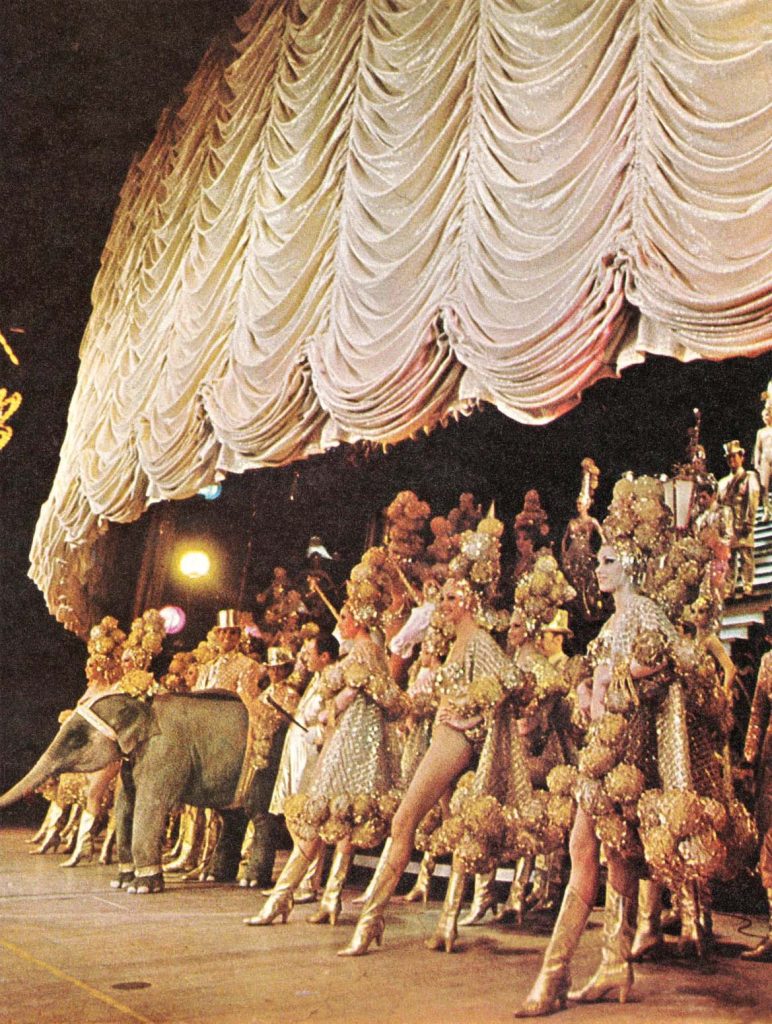TONY SANDLER
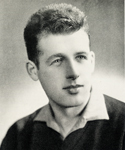
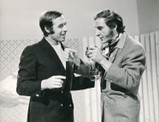
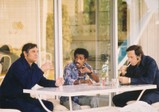
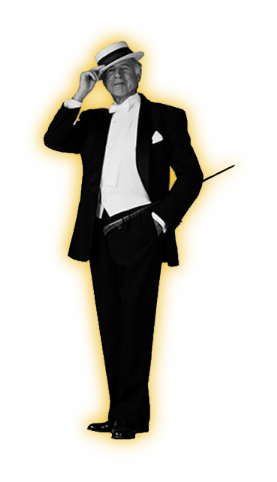
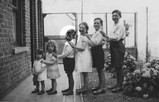
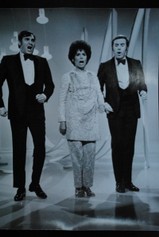
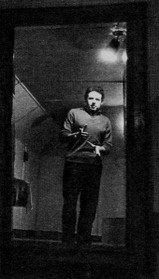
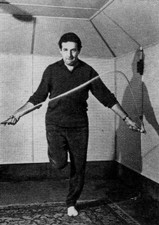
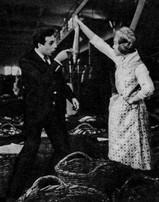
1933, August 18 – Tony Sandler was born and raised on a family homestead on the edge of Lauwe, a small village in West Flanders, Belgium. His given name was Lucien Joseph Santelé. He learned early the rewards of honest labor as he helped to till the soil by hand…
Read More
1940, May 10 – Lucien was seven years old when Hitler’s forces invaded Western Europe in a seventeen-day Blitzkrieg. On May 24th the Germans opened a major attack against Belgian positions near Kortrijk, heavily damaging the Santelé home, which was located only four miles away. The major cities as well…
Read More
1944–1949 is a significant period during which Lucien learned musical and linguistic skills that would serve him well for the remainder of his life. During the occupation, the Germans made a show of creating “normalcy” within the population. This included sending all the children back to school. Toward the end…
Read More
1950 – When his sonorous voice and good looks began to attract wide attention, especially among young women, Lucien turned his aspirations to singing and recording songs. Remi Dejans, the owner of a Lauwe-based rubber company, Solidor, saw a publicity opportunity with this young singer. Together, he and Lucien organized…
Read More
1951 – Lucien Santelé becomes Tony Sandler with his first recording contract. Lucien was invited to perform at Le Venice, a swank café chantant on de Keyserlei, the main boulevard in Antwerp. He was accompanied by the Marc Mirror ensemble, the house ensemble at Le Venice. Two of the songs…
Read More
1952 – Tony Sandler was drafted into military service. The Korean War was in progress when Tony was drafted into the Belgian Air Force. Because of his fluency in several languages, the air force trained Tony to be a radar specialist. He was stationed at Fort Eben-Emael on the Belgian-German…
Read More
1954–1958 Tony Sandler was contracted to record for Polydor Records. At the end of his service, Tony resumed his singing career. Because of his already-established success, he was contracted to record for Polydor Records, a major record company with a studio in Brussels, Belgium, and with its main studio in…
Read More
The year 1958 unleashed a myriad of opportunities for Tony. His popularity blossomed, and offers came from several directions. A German talent scout and producer with Ariola, Werner Mertin, came to visit Tony at his home in Kuurne, West Flanders. Mertin had in hand a proposal from Ariola Records. Tony…
Read More
Early 1960s – As a Belgian, it is remarkable that Tony was accepted as a top recording artist with the German public. He was invited to perform his German hits at music festivals in Europe. Radio stations sponsored large concerts known as Schlagerfeste (Hit Festivals). These very popular and well-attended…
Read More
December 1960 into January 1961 – For six weeks, Tony toured South Africa, performing at the Rand Club in Johannesburg, The Beachcomber nightclub near Durban, and in Cape Town. Belgian newspaper clipping: (Top) Tony Sandler with a Zulu baby in his arms. (Left) Tony Sandler as a rickshaw man wearing…
Read More
1961, June 4 – The first Deutsche Schlager-Festspiele took place on June 4, 1961, in the Kurhaus in Baden-Baden. Südwestfunk (SWF), a prominent broadcaster at the time, organized the event. Tony placed 7th with “In Paraguay” (music and lyrics by Harry Frank and Edgar Gernet). Ariola released “In Paraguay” as…
Read More
1961–1962 – Renowned jazz violinist Helmut Zacharias invited Tony to perform with his orchestra. Helmut Zacharias and his orchestra had a tremendous following, and prior to and during Tony’s time as a headliner in Alassio, he performed with Helmut on several tours to all the large concert venues throughout Germany,…
Read More
1958–1963 On Television. The record companies were also instrumental in arranging for Tony to appear in several German musical films for cinema and ZDF Television. Throughout this period, Tony Sandler starred in a 1961 television miniseries produced by Österreichischer Rundfunk (ORF), Reisebüro der kleinen Wünsche (Travel Agency of Small Wishes),…
Read More
Casino de Paris opened in December 1963 for the holiday season and was an immediate hit. The show played 365 days a year, with two shows nightly. Apcar extended Tony’s three-month contract to one year. Tony reluctantly agreed, and yet again he postponed his existing European contracts. Ralph Young influenced…
Read More
